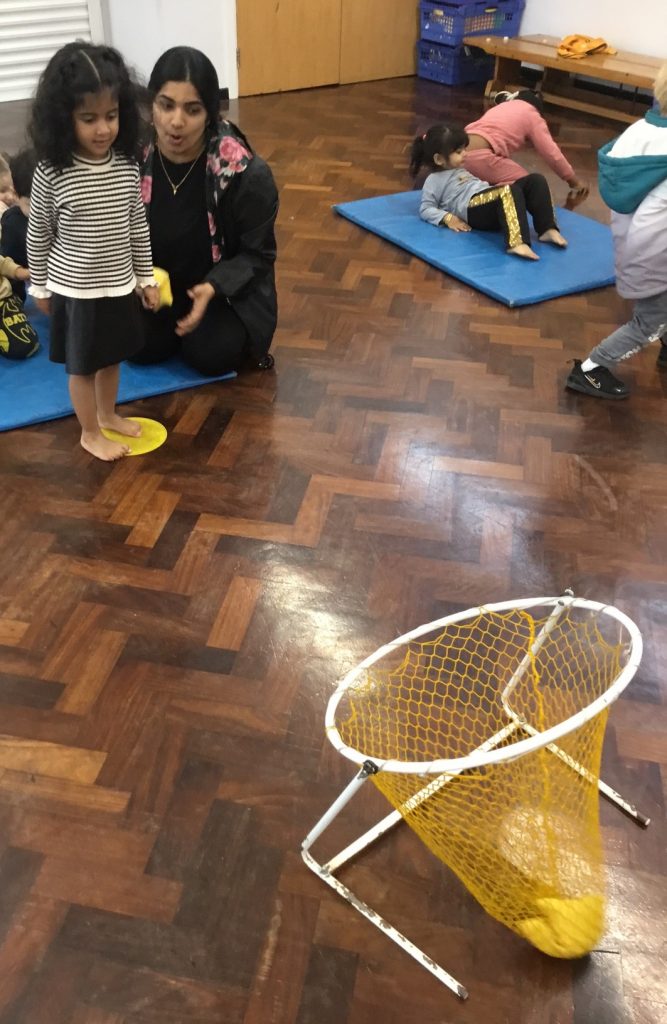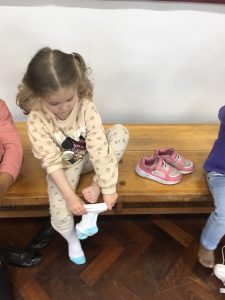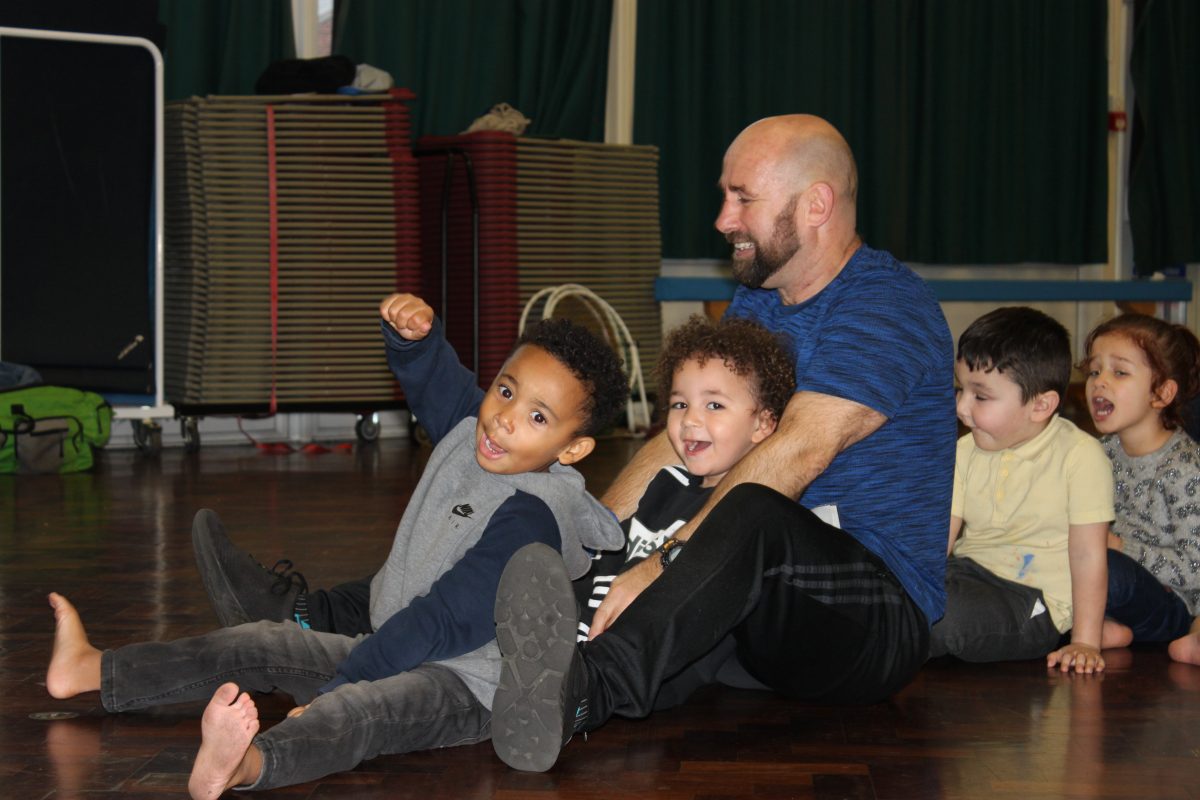Physical Education
The children at Chatham Nursery School benefit from weekly Physical Education sessions held at St Hugh’s school and are led by Early Years Sports specialist Martin Lancaster.
The children develop skills such as co-ordination, control and balance . They can practice and refine these skills when engaged in free play in the nursery’s outdoor environment.
Most of all the children gain pleasure from being physically active and Martin sessions are always full of fun!
Evidence suggests that being physically active in the early years can:
- support brain development
- help develop social skills and emotional wellbeing
- enhance bone health and muscular development
- give children the skills and confidence they need to continue and active lifestyle into childhood and beyond.


Time2Sign
The children will also have the opportunity to take part in Time2Sign sessions with Chris. These are an enjoyable, multi-sensory experience that keeps children engaged and makes learning language and communication fun and memorable. Learning signs alongside spoken words can strengthen children’s understanding of language, as they associate both the visual and auditory aspects of communication. Signing requires children to focus on specific movements and hand shapes, which can improve attention, hand-eye coordination, and fine motor skills that are essential for writing and other physical activities.
Forest School Sessions
Forest School sessions are held in our Forest School next door to St Hugh’s Primary School. They offer a range of benefits for young children in the early years:
Physical Development: Being outdoors encourages children to move freely, climb, explore, and engage in physical activities that build their strength, coordination, and gross motor skills.
Confidence and Independence: Forest School sessions give children the opportunity to make decisions, take risks, and solve problems in a safe, supported environment. This helps build their confidence, resilience, and independence as they learn to trust their abilities.
Emotional Well-being: Time spent in nature is known to reduce stress and promote a sense of calm. The natural environment provides a space for children to express themselves, explore their feelings, and develop emotional resilience.
Creativity and Imagination: The outdoor setting sparks children’s imagination, allowing them to engage in open-ended play. They use natural materials like sticks, leaves, and stones to create, build, and invent, which enhances their creativity and problem-solving skills.
Social Skills and Teamwork: Forest School encourages collaboration and communication, as children often work together to complete tasks, build structures, or explore new areas. This helps develop their social skills, cooperation, and ability to work as part of a team.

